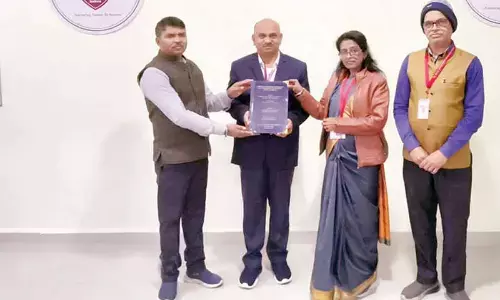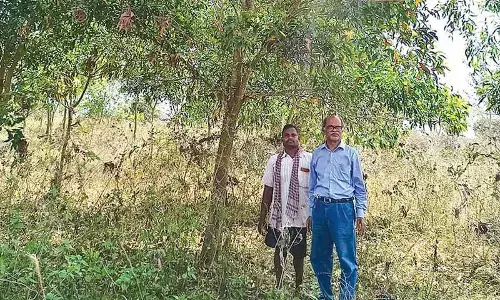Deforestation for coffee production ups malaria risk
 Representational Image
Representational ImageResearchers, including one of an Indian-origin, have estimated that 20 per cent of the malaria risk in deforestation hot spots is driven by the international trade of exports including coffee, cocoa, palm oil, tobacco, beef and cotton.
Sydney:Researchers, including one of an Indian-origin, have estimated that 20 per cent of the malaria risk in deforestation hot spots is driven by the international trade of exports including coffee, cocoa, palm oil, tobacco, beef and cotton.
Previous studies have shown deforestation and rainforest disturbances can increase the transmission of malaria by creating conditions where mosquitoes thrive: warmer habitats and fewer predators.
"What does this mean for affluent consumers?" asks study senior author Professor Manfred Lenzen, from the University of Sydney in Australia.
"We need to be more mindful of our consumption and procurement, and avoid buying from sources implicated with deforestation, and support sustainable land ownership in developing countries," Lenzen said.
According to the researchers, directing consumption away from deforestation has benefits beyond the malaria link; it will help reducing biodiversity loss and greenhouse gas emissions as well.
For the findings, published in the journal Nature Communications, the research team investigated links between the increasing risk of malaria in developing countries to products demanded by distant consumers.
"This study is the first to assess the role of global consumption in increasing deforestation and, in turn, malaria risk. Unsustainable human consumption is clearly driving this trend," said Indian-origin researcher and study co-author Dr Arunima Malik from the University of Sydney in Australia.
"We achieved this by quantitatively relating malaria incidence first with deforestation, then to primary commodity production, which we then connected to global supply-chain networks and ultimately to worldwide consumer demand," Malik said.
The final step was accomplished by coupling a highly detailed and large international database with an established and widely used analytical technique - multi-region input-output (MRIO) analysis, the study said.
"This work goes beyond simple incidence mapping and correlations, in that it unveils a global supply-chain network that links malaria occurring in specific locations because of deforestation with globally dispersed consumption," Malik said.
The results of the study can be used for more demand-side approaches to mitigating malaria incidence by focusing on regulating malaria-impacted global supply chains, the researchers said.
Demand-side initiatives such as product labelling and certification, supply-chain dialogue and green procurement standards have been successful in addressing trade-related global problems such as deforestation, threats to species and child labour.
















